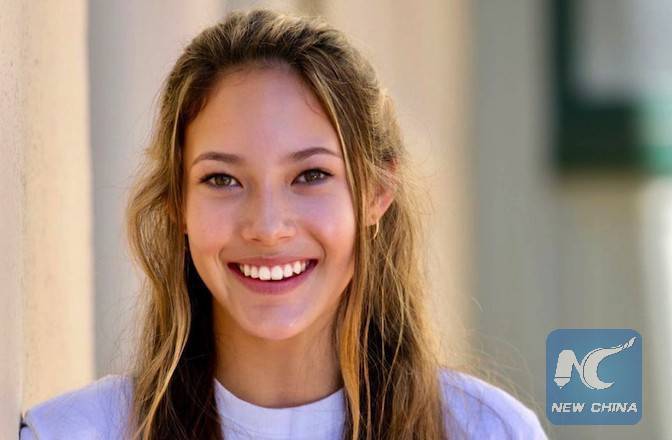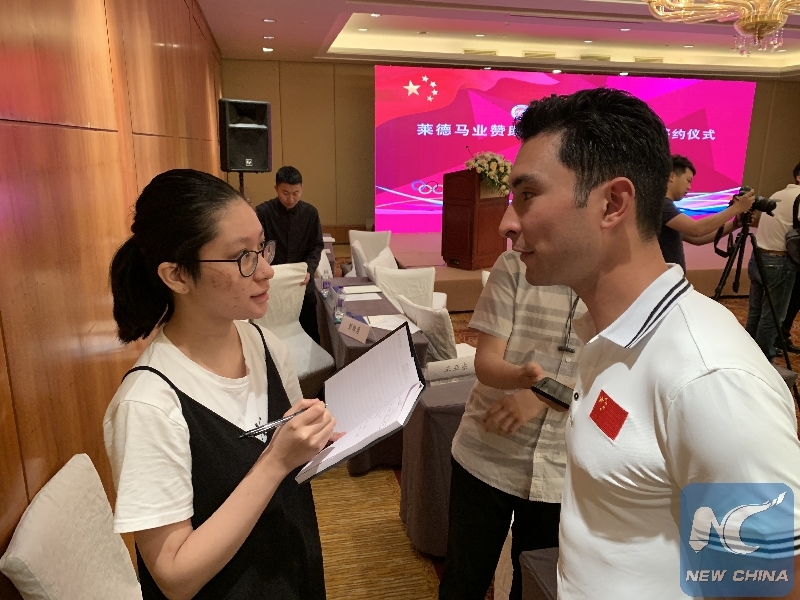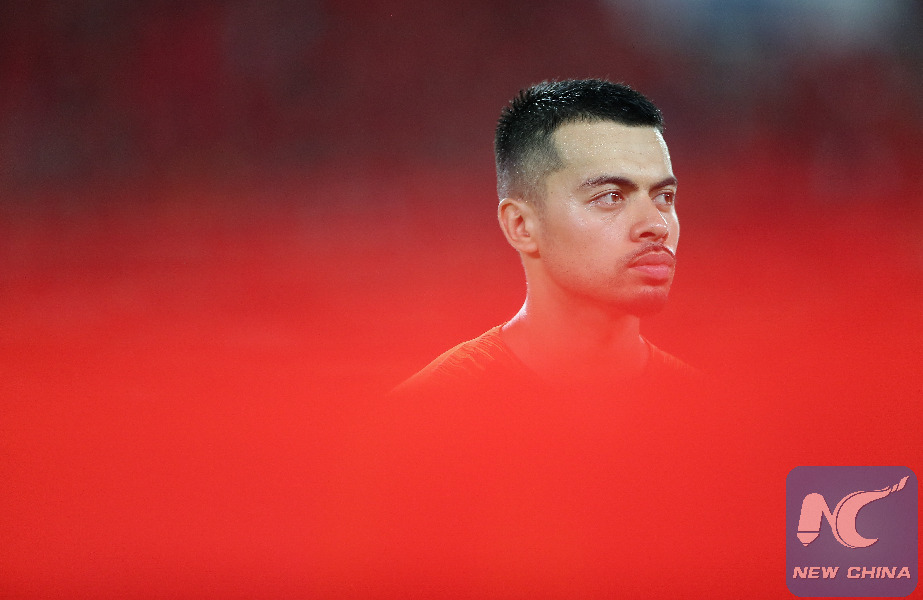By Qin Lang and Vivian Ji
NEW YORK, June 21 (Xinhua) -- A discussion around the use of naturalized athletes has come under the microscope in recent months following a number of high profile switches in international allegiance. Questions have been raised on both sides on whether this recent trend is, in fact, a positive thing.

Eileen Gu
In one recent case, Eileen Gu, a 15-year-old American-born skier, announced to her followers on Weibo on June 6 that she had become a Chinese citizen and that she planned to ski internationally for China in the future.
Despite being born in the United States and having an American father, Gu maintains that she had always felt Chinese. Growing up Gu was exposed to Chinese culture by her Chinese mother and her American father. Having lived in America her entire life, Gu was also exposed to the rich history of American skiing and was fortunate to have access to the facilities America has to offer.

Eileen Gu
However, now at the age of 15, Gu is old enough to make her own decisions. The choice of nationality is not always an easy one and despite representing the United States in international competitions since the 2017-18 season, Gu has made the choice to switch. A decision she is clearly comfortable with.
Skiing in competitions since the age of nine, Gu has spoken of her pride at being the first naturalized skier for China and that she hopes to promote ski culture between China and America.

Alex Hua Tian
Gu experiences mirror the naturalization of two British-born athletes, Alex Hua Tian and Nico Yennaris, known as Li Ke in China. Alex Hua Tian, who first started competing for China in 2006, has not looked back and recently led the Chinese national equestrian team to a first Olympic Games in Tokyo next year.
Li Ke, who represents Beijing Guo'an in the Chinese Super League, recently made his full international debut for China in the recent international break. Although he had made appearances for English youth teams, Li has furrowed his own path in China and has grabbed the opportunity offered by the country with both hands.

Li Ke
China, unlike many other nations in sport, has only recently started to increase the number of naturalized athletes. The number of naturalized athletes in the Chinese sporting system remains very low, especially compared to other nations around the world. For example, the case of Declan Rice in England made headlines around the world as the hot football prospect made the switch in allegiance from the Republic of Ireland to England at an international level, despite making a number of senior appearances for Ireland.
The case of Rice is not uncommon in the footballing world. Following the French triumph in the FIFA World Cup, questions were again raised about the high proportion of African-born stars in their side. However, the question of nationality and how one feels is a highly personal decision and it is not for partisan commentators to decide or judge an individual for making such a choice.
The arguments over naturalized athletes appeared again today as Shangdong Taishan announced that Pedro Delgado, a Portuguese-born footballer, announced that he had become a Chinese citizen. While Delgado's parents are both Portuguese, he made the decision to switch from Portugal to China. Like many African footballers in France or indeed German footballers for the United States, only Delgado can decide on his own feeling of belonging and the opportunities he may have in the future.
As the world becomes more globalized, the numbers of naturalized athletes around the world will only continue to increase. However, in the case of China as well as many, many more nations, these individual decisions are mutually beneficial.
For China, the increase of overseas-born talent is only going to increase competition for the Chinese-born athletes, resulting in short-term improvements in results but a long-term rise in standards for all Chinese athletes, wherever they may be born.

